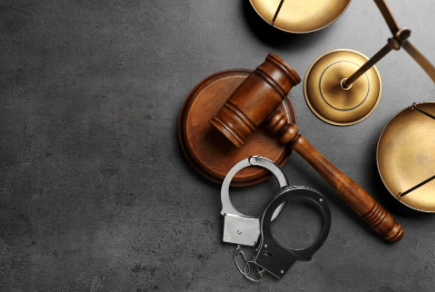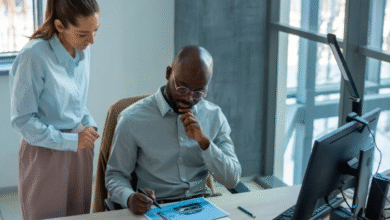How Evidence & Legal Strategy Change When You Hire a Criminal Lawyer

Facing a criminal charge can be one of the most stressful moments in a person’s life. Whether it’s a misunderstanding, a minor offense, or a serious allegation, what happens next depends on the choices you make early on. One of the most important of those decisions is whether to handle things alone or seek help from a criminal lawyer who understands how evidence, rights, and courtroom strategy truly work.
While most people know that lawyers defend clients in court, fewer realize how dramatically the approach to evidence and defense changes when a professional steps in. From day one, a criminal defense attorney begins working not only to protect your rights but also to shape the narrative in your favor — long before a judge or jury hears a single word.
The Power of Early Legal Guidance
Many defendants wait too long before hiring representation, often believing that cooperation or honesty alone will protect them. Unfortunately, law enforcement is not required to explain every detail of your rights. Once you speak freely, much of what you say can become evidence against you.
A criminal lawyer intervenes at this critical stage. They guide you on what to say — and what not to. More importantly, they start gathering their own version of the story through witness statements, video footage, and expert analysis. This early intervention can change how evidence is presented later and prevent damaging mistakes that are difficult to undo.
Understanding the Nature of Evidence
In criminal cases, evidence is more than physical objects like fingerprints or CCTV recordings. It also includes digital data, text messages, witness testimony, and even how you behave during questioning.
When a criminal lawyer reviews evidence, they look at two sides: what helps the prosecution and what can be challenged. They assess whether the evidence was collected legally, whether there were any procedural errors, and whether it can be excluded from trial. For instance, if police searched a home without a valid warrant, any evidence gathered may be thrown out entirely.
Without a professional to identify such legal flaws, an accused person might never realize that a key piece of evidence against them could have been invalidated.
Building a Defense Strategy Around the Evidence
Evidence alone doesn’t determine guilt or innocence — how it’s interpreted does. That’s where legal strategy comes in.
A criminal defense lawyer studies every detail: inconsistencies in witness accounts, gaps in timelines, or unclear surveillance footage. They then craft a strategy to highlight doubt and question credibility. The goal isn’t to deny facts but to present them in a way that tells a fuller, more accurate story.
For example, a lawyer might use expert testimony to challenge forensic results or highlight errors in how evidence was handled. In other cases, they might demonstrate that a client’s actions were taken in self-defense or under duress.
These strategic choices require deep legal understanding — not just of the law itself, but of how judges and juries interpret it.
Negotiation and Plea Bargains
Not every case goes to trial. In fact, most criminal cases end with a plea deal. But negotiating such deals effectively requires both timing and leverage.
A seasoned criminal lawyer knows when to push for reduced charges, when to accept an offer, and when to reject it. They base this decision on the strength of evidence, the likelihood of conviction, and the potential penalties.
Without that professional assessment, defendants often accept poor plea deals out of fear or confusion. An attorney can ensure any agreement reached still protects your record and future opportunities as much as possible.
The Role of Investigators and Experts
Experienced lawyers don’t work alone. They often collaborate with investigators, forensic analysts, psychologists, and other experts to reconstruct events or interpret technical data.
For example, in domestic violence or assault cases, a domestic violence psychologist can provide critical insights into behavioral patterns, emotional responses, and trauma impacts helping the court understand the psychological aspects behind an incident. In a DUI case, a toxicology expert might examine whether breathalyzer equipment was properly calibrated.
In an assault case, a forensic specialist might review the trajectory of injuries. Each professional insight adds depth to the defense, something rarely possible without legal coordination.
How Evidence Can Work in Your Favor
One of the biggest misconceptions people have is that evidence always hurts the defendant. In reality, evidence can also be your strongest ally — if used correctly.
Surveillance footage might show you weren’t at the scene. A phone record might prove a text was sent hours earlier than claimed. Even small inconsistencies in police paperwork can raise reasonable doubt.
The difference lies in knowing how to present this evidence clearly and persuasively. That’s where professional legal representation becomes essential. An experienced lawyer knows how to admit favorable evidence while preventing irrelevant or prejudicial material from being shown in court.
The Human Element: Trust and Communication
Beyond legal expertise, working with a criminal lawyer brings another crucial element — trust. Criminal defense often involves personal stories, emotional situations, and sensitive facts. You need someone who can listen without judgment and translate your side of the story into a strong legal argument.
Lawyers also manage communication with prosecutors and law enforcement, ensuring you don’t say anything that could harm your defense. They act as both your advocate and your shield throughout the process.
Protecting Your Future Beyond the Verdict
Even after a case concludes, the impact can linger. Criminal records, probation terms, and background checks can all affect future employment and personal relationships.
A skilled lawyer doesn’t just fight for a verdict — they work to minimize long-term consequences. This might include seeking expungement, negotiating lighter penalties, or guiding clients on rehabilitation options.
Their job is to ensure that one legal issue doesn’t define the rest of your life.
Final Thoughts
Criminal law isn’t just about courtroom battles; it’s about managing evidence, timing, and human behavior in complex situations. Hiring a criminal lawyer can change the entire course of your case — not simply by defending you, but by ensuring that the story told in court reflects the truth of what happened.
Whether you’re facing charges or simply want to understand your rights better, professional legal guidance can make the difference between a temporary setback and a lasting mistake. In the world of criminal defense, the earlier you seek help, the more control you have over the outcome.




